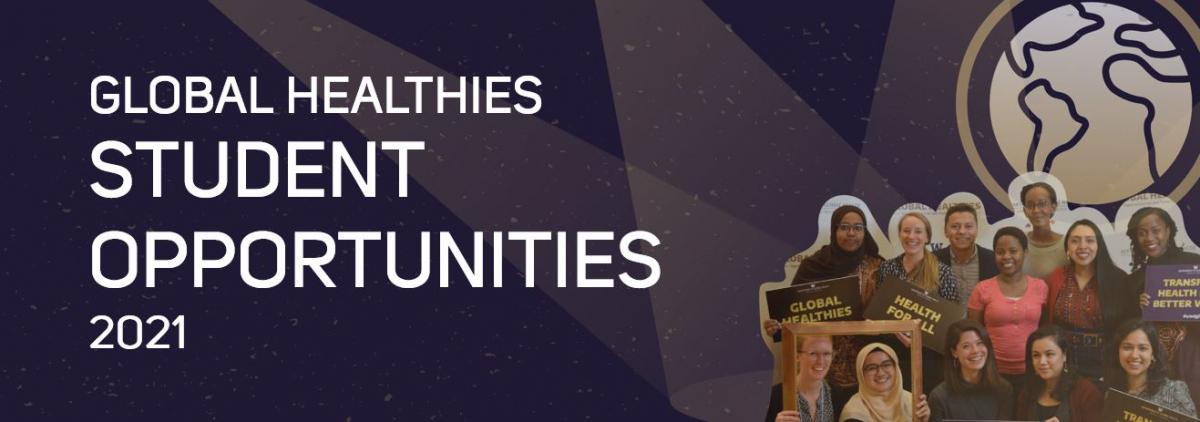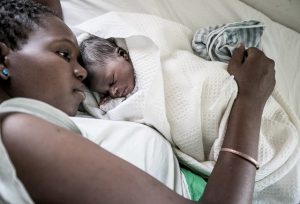Research
February 19, 2021
A new award funds a water purification system to improve testing quality at collaborative laboratories in Kenya
 The importance of water quality and its role in generating reliable, consistent, and cost-effective laboratory analysis is often overlooked in research laboratories. Without high-quality pure water, very few tests would be possible. An effective water purification system can meet the needs of laboratories to remove contaminants that would interfere with specific tests or procedures.
The importance of water quality and its role in generating reliable, consistent, and cost-effective laboratory analysis is often overlooked in research laboratories. Without high-quality pure water, very few tests would be possible. An effective water purification system can meet the needs of laboratories to remove contaminants that would interfere with specific tests or procedures.
With funding from a recent 2020 UW/Center for AIDS Research (CFAR) International Infrastructure Award, Dr. Bhavna Chohan (Clinical Assistant Professor, Global Health; Senior Research Scientist, Kenya Medical Research Institute) will purchase a water purification system with UV radiation treatment that will serve the UW-affiliated collaborative research laboratories in Nairobi, Kisumu, and Mombasa in Kenya. This proposal garnered the support of partnerships between the University of Washington and the University of Nairobi, and between Partners in Health and Research Development (PHRD) and Kenya Medical Research Institute (KEMRI). (more…)
February 15, 2021
Global WACh virtually participates in the seventh annual Global Healthies
Categories: Research, students

Global WACh participated in the Department of Global Health’s seventh annual Global Healthies event this month, an event that brings the UW and Seattle-area global health community together to explore opportunities for collaborations and to highlight students’ global health research. (more…)
December 1, 2020
Researchers receive award to estimate COVID-19 prevalence, household transmission, and antibody response among pregnant women in King County, WA
Categories: Awards, COVID-19, Research

Dr. Alison Drake (Assistant Professor, Global Health and Epidemiology [Adjunct]) and Dr. Sylvia LaCourse (Assistant Professor, Medicine and Global Health) are the Principal Investigators of a new study to estimate the seroprevalence of SARS-CoV-2 in King County, WA.
(more…)
November 25, 2020
Researchers present at the virtual International Workshop on HIV Pediatrics 2020
Categories: Conferences, HIV, Research, Youth

The 2020 International Workshop on HIV & Pediatrics was held virtually on November 16th and 17th. This is the only scientific meeting entirely devoted to research in the prevention and treatment of HIV infections in infants, children, and adolescents, making it the premier forum for the world’s leading researchers. Download the full program and abstract book here. (more…)
November 24, 2020
Gut Health and Child Survival researchers present findings at virtual infectious diseases conferences
Categories: Conferences, Gut Health and Child Survival, Research

This month, researchers and collaborators from Global WACh’s Gut Health and Child Survival scientific priority area participated in two annual conferences virtually to share their latest research activities and discoveries related to pediatric infectious diseases and neglected tropical diseases.
November 20, 2020
Dual HIV/syphilis rapid diagnostic test cost-effectiveness analysis, that changed WHO recommendation, published in the Lancet Global Health
Categories: HIV and Co-Infections, Publication, Research

Dual elimination of mother-to-child transmission (MTCT) of HIV and syphilis is a public health priority. Global efforts for the prevention of MTCT of HIV have led to substantial reductions in new pediatric HIV infections, but progress for preventing congenital syphilis—a sexually transmitted infection that causes stillbirths and other infant health problems—is much slower. While dual HIV and syphilis RDT have some promise to curb pediatric HIV and syphilis, the cost-effectiveness of using these tests in antenatal care settings in a variety of settings has not been explored. (more…)
October 19, 2020
Researchers receive new award for pregnancy and breastfeeding PrEP adherence mHealth intervention
Categories: Awards, HIV, PrEP, Research

Congratulations to Dr. John Kinuthia (Affiliated Associate Professor, UW Global Health; Obstetrician Gynecologist, Kenyatta National Hospital) and Dr. Jillian Pintye (Assistant Professor, UW School of Nursing) for receiving a National Institute of Health R01 award! They are Multiple Principal Investigators of a new five-year randomized trial titled, “mWACh-PrEP: A SMS-based Support Intervention to Enhance PrEP Adherence during Pregnancy and Breastfeeding,” to evaluate the effects of a tailored two-way SMS communication tool on PrEP adherence among Kenyan women during the pregnancy and postpartum periods, when the risk of acquiring HIV is high. (more…)
October 14, 2020
UW, Kenyatta National Hospital, and University of Nairobi researchers receive award to develop HIV screening strategies in Kenya
Categories: Awards, Children, HIV, Research, Youth

As prevention of mother-to-child transmission of HIV programs globally continue to increase reach and effectiveness, fewer children are living with HIV, but a growing proportion has had HIV exposure. HIV-exposed uninfected (HEU) children in sub-Saharan Africa are a rapidly growing population in need of care to ensure their optimal health and well-being. Compared to HIV-unexposed children, HEU children are more vulnerable to risks of illness and death and may have poorer neurodevelopmental and growth outcomes. (more…)
September 16, 2020
Dr. Keshet Ronen and the Somali Health Board partner to increase COVID-19 testing equity in King County, WA
Categories: Awards, COVID-19, Research

Congratulation to Dr. Keshet Ronen (Acting Assistant Professor, Global Health) and Dr. Ahmed Ali (Executive Director, Somali Health Board) for receiving a COVID-19 Population Health Equity Grant from the University of Washington to increase access to COVID-19 testing among the Somali community in King County, WA. Led in partnership with the Somali Health Board, a Somali-led grassroots organization, this project aims to understand barriers to testing in this heavily impacted community and identify approaches to improve health equity in King County’s testing strategy. (more…)
August 26, 2020
Dr. Irene Njuguna receives NIH Emerging Global Leader Award to support HIV+ adolescents thrive in schools
Categories: Awards, HIV, Research, Schools
 Congratulations to Dr. Irene Njuguna (Pediatric Infectious Disease Resarcher, Kenyatta National Hospital) for receiving a National Institutes of Health K43 Emerging Global Leader Award! Dr. Njuguna is currently involved in multiple University of Nairobi-Global WACh collaborative studies focused on pediatric and adolescent HIV. This five-year award supports her growing research career in this field. The new study titled “Understanding the role of schools in supporting HIV treatment outcomes among HIV infected adolescents,” — also known as TIMIZA, the Swahili word for “achieve” – focuses on the role of schools in supporting HIV treatment for adolescents in Kenya. (more…)
Congratulations to Dr. Irene Njuguna (Pediatric Infectious Disease Resarcher, Kenyatta National Hospital) for receiving a National Institutes of Health K43 Emerging Global Leader Award! Dr. Njuguna is currently involved in multiple University of Nairobi-Global WACh collaborative studies focused on pediatric and adolescent HIV. This five-year award supports her growing research career in this field. The new study titled “Understanding the role of schools in supporting HIV treatment outcomes among HIV infected adolescents,” — also known as TIMIZA, the Swahili word for “achieve” – focuses on the role of schools in supporting HIV treatment for adolescents in Kenya. (more…)
Previous page Next page